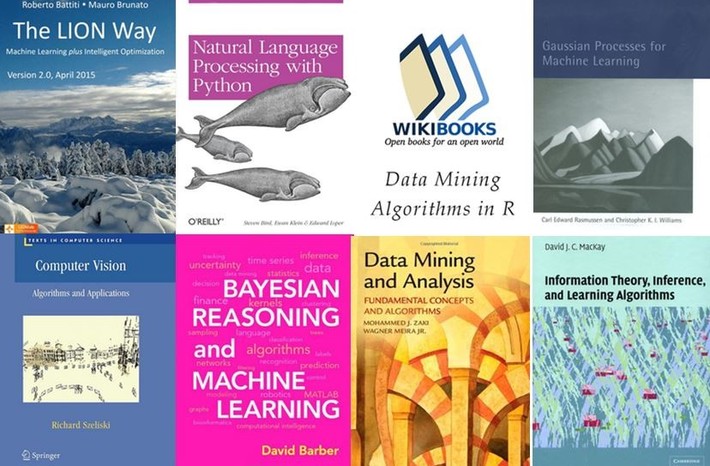I share a list of recommended free books for Data Science & AI from introductory level to advanced techniques:
- The LION Way: Machine Learning plus Intelligent Optimization
- Computer Vision
- Natural Language Processing with Python
- Bayesian Reasoning and Machine Learning
- Data Mining Algorithms In R
- Data Mining and Analysis: Fundamental Concepts and Algorithms
- Gaussian Processes for Machine Learning
- Information Theory, Inference, and Learning Algorithms
- Probabilistic Programming & Bayesian Methods for Hackers
- Social Media Mining An Introduction

I hope that these books are of your interest, and I have found them very interesting and with real applications to our projects, even many of them I usually recommend in my formations. I hope your opinions of other free books that you use!
Originally posted here
